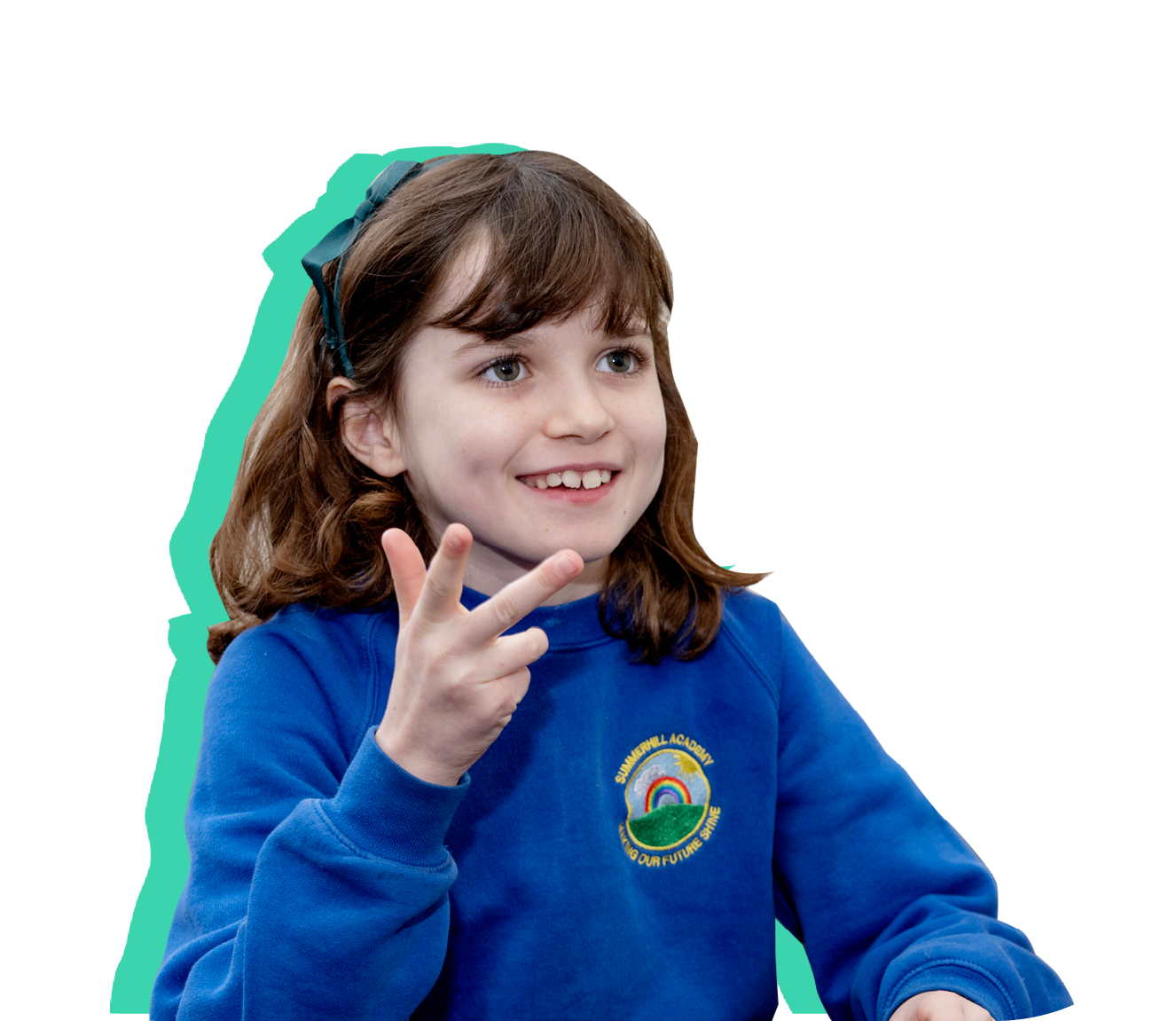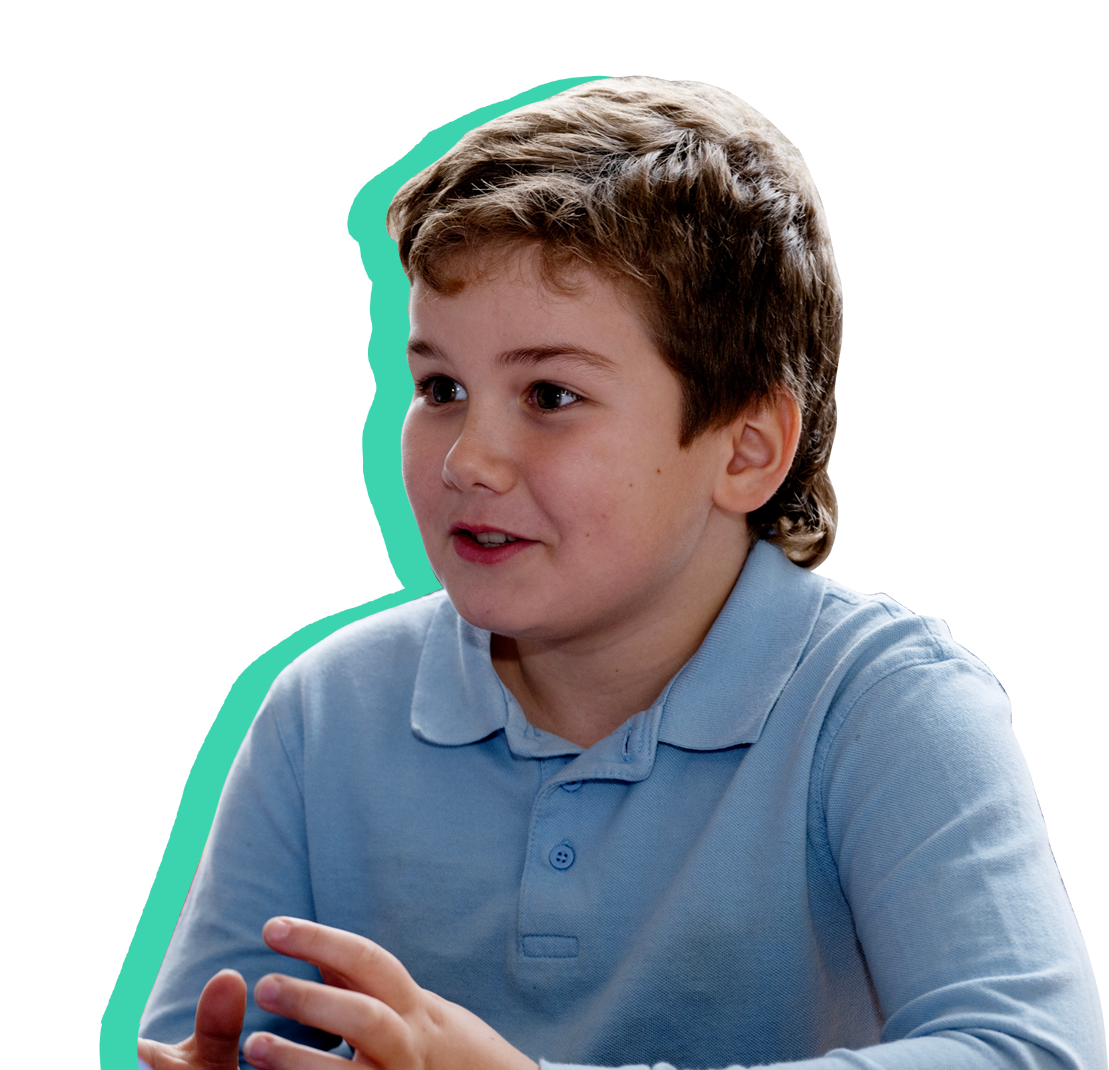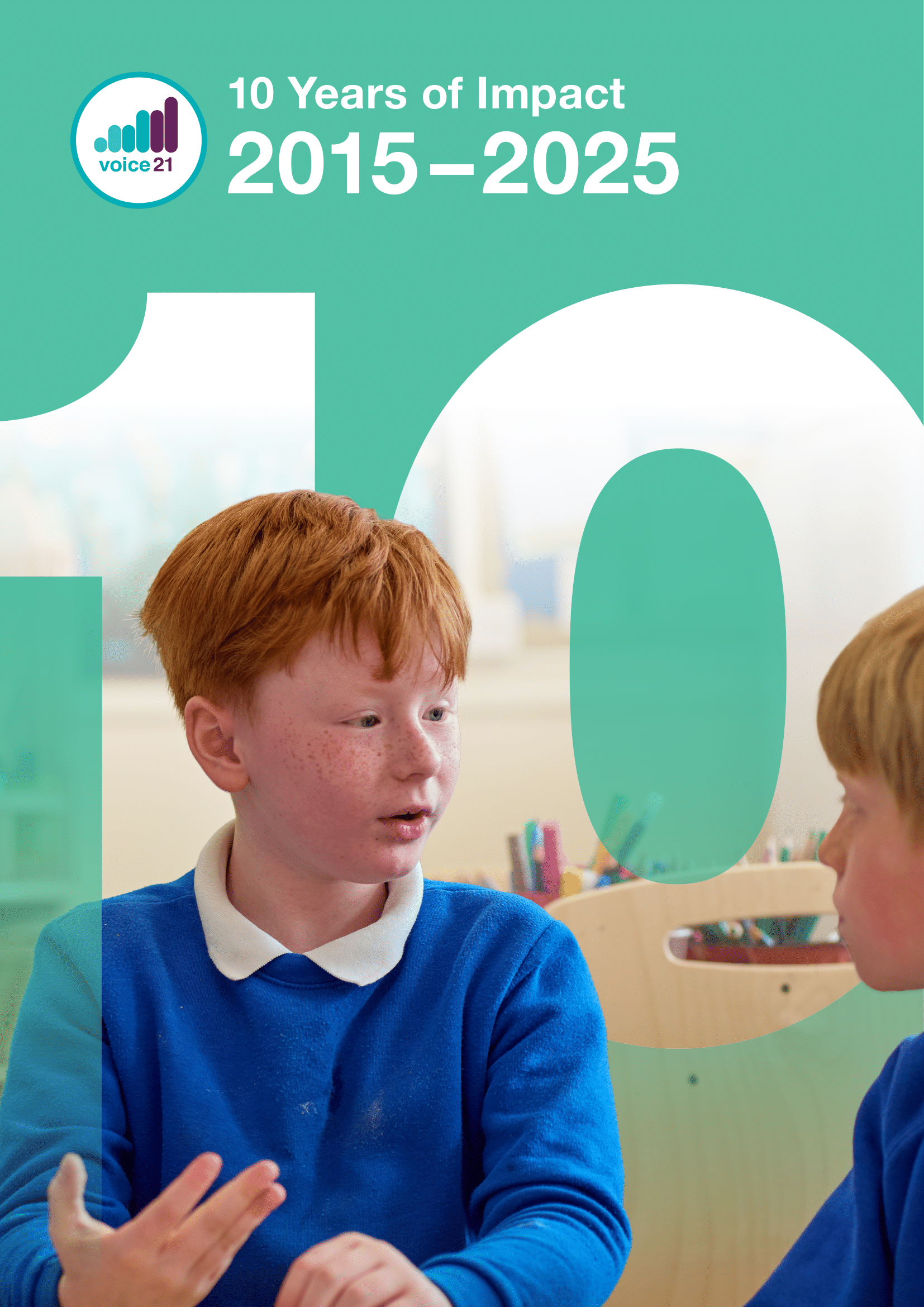Spotlight on Behaviour & Culture
Oracy gives students the skills to listen, take turns and resolve conflict

Learning how to talk through differences of opinion supports conflict resolution.
Conflict resolution
Through oracy children are better able to regulate and communicate their feelings.

Diffusing difficult situations through talk
We are hearing from schools we work with that children are struggling to articulate and regulate how they feel. Disruptive behaviour and conflict with peers/staff is often an expression of a need that a child does not have an outlet for and by teaching children what good talk in the classroom is like, we enable every child to access that outside of lessons.
Voice 21 Oracy Schools that embark on an oracy journey often report the surprising and profound effect it has had on behaviour. Through oracy, children are better able to regulate, communicate and manage their feelings in difficult situations. Children have learned to adapt their tone and voice to diffuse difficult situations, leading to less disputes on the playground and within the wider community.
Case Study - Grove Street Primary School
Outside the classroom, leaders explain that there are less playground disputes because students are able to better articulate their feelings.
.png?width=300&height=300&name=4%20(2).png)
For our students, oracy is a form of armour
- Charles Hewitt, Deputy Head Teacher
Since implementing oracy across the school and working with Voice 21, Grove Street Primary School can see higher engagement; when teachers ask a question a flurry of hands shoot up enthusiastically. Teachers report that students are now more willing to participate in class, keen for their ideas to be heard. Behaviour for learning has also improved now that students are more engaged in their learning. Outside the classroom, leaders explain that there are less playground disputes because students are able to better articulate their feelings.
Emotional literacy
Setting students up for success by giving them the tools to communicate meaningfully.
.png?width=300&height=300&name=Untitled%20design%20(33).png)
Young people are feeling more isolated than ever before
Voice 21 Oracy Schools are reporting and increase in alienation and isolation in students, especially within a digitally dominated world. For children and young people, school is often their primary place of enrichment.
Children that struggle to articulate themselves can span out onto the playground or through disengagement. Some of these issues are caused by undiagnosed language and communication needs and through oracy and creating a culture of talk in the classroom, teachers feel more confident in identifying these needs much earlier on.

Ten years ago, Voice 21 set out to drive a big, irreversible change in the education system. To enable every child to use their voice to thrive in school, work and life by ensuring oracy is given the same status as literacy and numeracy in state schools across the UK.
Our ten-year anniversary special Impact Report looks back at the changes we’ve made, the schools we’ve worked with and the lives we’ve touched over that time.
Download the Ten Years of Impact Report 2015 - 2025
Continue learning about the impact of oracy on students and in schools
Confidence
The confidence to speak up, build new relationships and be agile communicators, prepares children and young people for success in school life and beyond. Learn more about the link between oracy and confidence.
Vocabulary
A child’s spoken language skills at age five are the strongest predictors of attainment at age eleven. Oracy is a crucial learning tool that supports children develop vocabulary. Learn more about the link between oracy and vocabulary.
